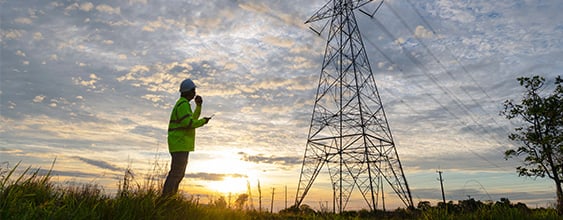In the broad context of the global economy, micro, small and medium-sized enterprises — commonly known as MSMEs — represent important drivers of sustainable development, particularly in emerging markets and developing economies.
As countries face the challenges of fostering economic growth, confronting climate change and preventing environmental degradation, sustainable financing emerges as a beacon of opportunity for MSMEs. The World Bank and International Finance Corporation (IFC) recognize that sustainable finance plays a pivotal role in enabling MSMEs to thrive, while also contributing to global Sustainable Development Goals (SDGs), and national and local economic development targets.
Sustainable finance can help to advance environmental, social and governance objectives. For MSMEs, this translates into access to funds that facilitate the adoption of green technologies, sustainable business practices, effective and ethical governance practices, as well as environmentally friendly innovations, among other initiatives.
In emerging markets with high environmental stakes and pressing needs for more sustainable economic development, sustainable financing is not only beneficial but essential to broader societal progress.

In emerging markets, sustainable financing is not only beneficial but essential to broader societal progress.
Challenges in Sustainable MSME Financing
MSMEs are a significant and consequential component of emerging markets and developing economies. The World Bank estimates that MSMEs make up approximately 90 percent of businesses world-wide and are responsible for more than 50 percent of employment.
However, MSMEs in emerging markets face severe constraints in accessing sufficient financing to facilitate necessary business growth and invest in sustainability efforts that are essential for the transition to a low carbon, climate resilient economy. Common constraints include knowledge gaps, lack of sufficient capacity and insufficient access to capital. Each of these barriers hamper MSME investments in sustainable operational and capital expenditures.
Financial institutions operating in emerging markets play several critical financial roles for MSMEs, including providing banking services, facilitating access to capital, assessing and managing risk, promoting financial inclusion and supporting overall economic growth. However, these institutions are often ill-equipped to facilitate funding to MSMEs, limiting their ability to fulfill their potential in driving sustainable, climate-resilient development.
Guiding Financial Institution Investments
In the face of these challenges, IFC recently announced its publication of the Sustainable MSME Finance Reference Guide as part of IFC’s wider sustainable, social and green financing guidance resources.
WSP’s Climate Finance Team partnered with IFC to shape the Guide and gave the initial technical basis for its approach to catalyzing sustainable financing for MSMEs in emerging markets. The Guide sets out a practical approach for financial institutions to identify, finance and/or refinance MSME assets and activities in emerging markets.

MSMEs make up approximately 90 percent of businesses world-wide and are responsible for more than 50 percent of employment.
Successful Sustainable MSME Financing in Action
Evidence of the transformative impact of sustainable financing for MSMEs is growing. An example would be the Latin American Agribusiness Development Corporation (LAAD), which finances small and medium-sized businesses in the agricultural sector.
LAAD is a privately-owned financial intermediary that aims to promote economic, environmental and social development in Latin America. LAAD’s portfolio reached $1 billion in 2021, with investments in Ecuador, Guatemala, Mexico, Colombia, Nicaragua, Costa Rica, Peru, Chile, Brazil, Dominican Republic and Paraguay.
In August 2021, LAAD received its first green loan for $80 million from the IFC. The seven-year financing package includes $50 million from the IFC’s own account and $30 million mobilized from Symbiotics S.A., an impact investing platform. LAAD will disburse the loans to MSMEs that were weakened during the COVID-19 pandemic, promoting climate-smart agriculture.
Also in 2021, LAAD worked with the IFC to develop its Green Finance Framework to specify what criteria and processes it would use to classify prospective projects and agribusinesses as green.
The Path Forward
The journey towards widespread adoption of sustainable financing by MSMEs in emerging markets is ongoing and requires continued collaboration between governments, financial institutions, international organizations and the enterprises themselves. By prioritizing the development of sustainable finance ecosystems, stakeholders can ensure that MSMEs have the support they need to overcome barriers and seize the opportunities of a global economy pivoting towards green and sustainable investment priorities.
As the world grapples with the imperative of inclusive and resilient economic development, the role of MSMEs, supported by innovative financial solutions, is critical. The journey is complex, but the potential rewards for businesses, local and international communities, and the planet are immense. The time for action is now, to empower MSMEs to lead the charge towards a sustainable and prosperous future.
Darius Nassiry is vice president of climate, resilience and sustainability at WSP in the U.S. This column focuses on the importance of green financing for MSMEs, especially in the context of emerging and developing economies. It builds on insights gained from WSP's engagement with development finance institutions, including the World Bank and IFC.
[To subscribe to Insights, contact the editorial staff at [email protected].]
















